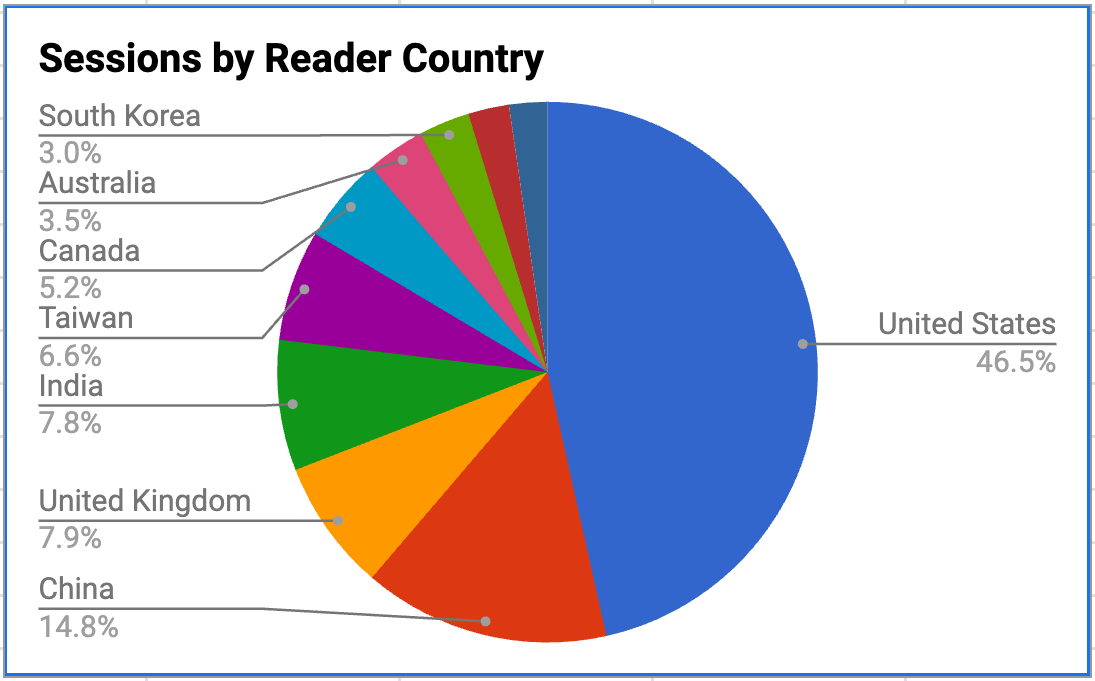
Image from https://stock.adobe.com/.
Welcome to CASTAC 2023 in review! In this post you will read about the wonderful work that our CASTAC team and community has put together. We thank you for engaging with our content this year and hope you will continue to do so in 2024. Without further ado, let’s get started with our annual review.
Platypus: The CASTAC Blog
Katie Ulrich served as the 2023 Managing Editor at Platypus, and we had nineteen fantastic Contributing Editors and Multimodal Contributing editors. Katie will continue as Managing Editor through December 2024. Our new 2024 team of Contributing Editors is our largest yet and includes folks from across the globe. Stay tuned for our 2024 Welcome Post in January, where we will introduce everyone.
In 2023, we published 53 posts and many of them were published in a second language, joining posts from previous years in Russian, Spanish, Mandarin, Hindi, Urdu, Kiswahili, Khmer, Portuguese, and Swedish.
Platypus’s readers continue to come from around the world–specifically, 187 different countries. This past year, a little over half of our total readership came from outside the United States. The seven largest groups of readers from outside of the US were from China, the United Kingdom, India, Taiwan, Canada, Australia, South Korea, Brazil, and Germany.

Table with readers by country (For the period between October 21, 2022, and October 19, 2023)
Inspired by Platypus’s commitment to accessibility, in 2022 Platypus implemented a new feature: access to audio recordings of blog posts. This feature was made possible with the generous support of Angela VandenBroek, the CASTAC Web Producer. In 2023 we continued this initiative and almost all posts are available for listening on Platypod.
Platypus’s sustained growth has only been possible due to its dedicated and diverse team, who are committed to delivering quality and nuanced posts from different parts of the globe. This includes our Public Relations officer, Naomi Zucker, who continues to amplify Platypus’s presence online and facilitate the growth of our audience.
Finally, the top ten most popular posts published in 2023 were the following:
- “The Day I Discovered I Was Collaborating on a Eugenics Project”: On Imponderables in Collaborative Research
- Belly Versus Bin: How Digital Autoethnography Brought Me Back From the Brink of Disordered Eating
- Ways of Knowing: Lessons on Agroecological Transitions from a Pothwari Farm
- Setting Traps: For an Insurgent and Joyful Science
- Transpositioning, a Hypertext-ethnography
- On Algorithmic Divination
- If I Could Talk to the Algorithm
- AI as a Feminist Issue
- “Blooming Biomes Mean Blooming Profits”: ‘Nature-based’ Industrial Farming and the Politics of the Industrial Animal Microbiome
- Junk Anthropology: A Manifesto for Trashing and Untrashing
Platypod
2023 was the second year of Platypod, the official CASTAC Podcast, with Ana Carolina de Assis Nunes taking on the helm of producer in April. Platypod features original episodes as well as recordings of blog posts read by authors. In 2023 Platypod produced two full-length interviews with anthropologists focusing on the anthropology of data and AI. Both interviews were with authors of recent books: Nick Seaver, based in the US, and Tanja Ahlin, based in the Netherlands. Full transcripts in English are available for these two episodes, and blog posts summarizing the key points of the conversations have been written in English and Portuguese. The 2023 edition of CASPR, focusing on digital ethnography, is also available as a podcast episode.
Prizes
Diana Forsythe Prize
This prize was created in 1998 to celebrate the best book or series of published articles in the spirit of Diana Forsythe’s feminist anthropological research on work, science, or technology, including biomedicine. The prize is awarded annually at the AAA meeting by a committee of one representative from the Society for the Anthropology of Work (SAW) and two from CASTAC. It is supported by the General Anthropology Division (GAD) and Bern Shen.
This year’s winner was Ruderal City: Ecologies of Migration, Race, and Urban Nature in Berlin (2022, Duke University Press) by Bettina Stoetzer.
David Hakken Graduate Student Paper Prize
Since 2015, the CASTAC has awarded a graduate student paper prize in recognition of excellent work by rising scholars. The prize is awarded to a paper that exemplifies innovative research at the intersection of anthropology and science and technology studies, demonstrating theoretical sophistication and an appreciation of the methodological challenges facing the anthropology of science and technology.
This year’s winner was Matthew Raj Webb (New York University) for his paper “Compositing the Body: Ethics of Mediation Among Professional Photographic Retouchers.” The honorable mention was awarded to Spencer Kaplan (Yale University) for his paper, “Facing Blockchain’s Double Bind: Trustless Technologies and “IRL Friends” in Berlin’s NFT Community.”
See you next year!
We thank you for reading, listening, and engaging with our content and hope to connect with you again in 2024. We also thank our outgoing CASTAC Co-Chair, Baird Campbell, who has been an invaluable part of our team. We sincerely thank him for his dedication, hard work, and leadership and wish him all the best in his future endeavors.
CASTAC is an entirely volunteer-run organization with an unpaid staff of more than twenty people. As we do not directly collect dues from our members, our operating budget of $300 per year (for costs associated with the blog website, etc.) comes from a portion of the dues paid to the General Anthropology Division of the American Anthropological Association.
Our community and our ambition to support it are growing faster than our budget! If you enjoy the work CASTAC does, consider donating and volunteering (watch for calls for applicants on the listserv). All donations will go directly to CASTAC to support our existing programs and develop new ones! Consider supporting CASTAC by making a donation using this link and following us on social media on @CASTAC_AAA.

1 Trackback